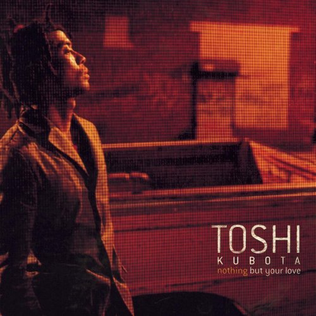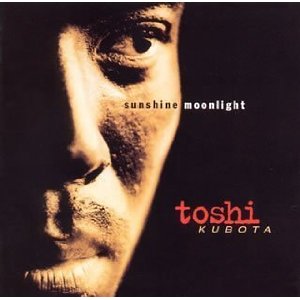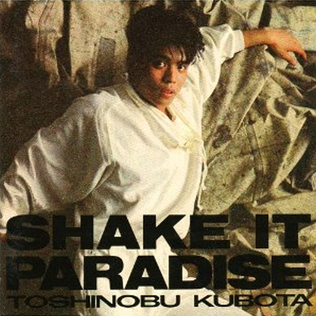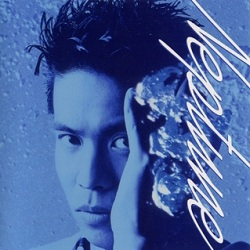Toshinobu "Toshi" Kubota is a Japanese singer, songwriter, musician, music producer, and radio personality. He has produced six million-seller records and thirty-three Top 40 singles during his career. Kubota is currently part of Sony Music Japan. In addition, he has composed and written songs for many singers including Hiromi Iwasaki, Misia, Toshinori Yonekura, Kyōko Koizumi, and many other recording artists.
Lynn Davis is an American singer, songwriter, musician, and record producer. She rose to prominence after joining The George Duke Band in 1977. During her time with the band, she sang lead vocals on some of their biggest hits: "I Want You for Myself", "Party Down", and "Thief in the Night". Under the guidance of Epic Records musician and mentor George Duke, Davis continued booking success by contributing background vocals and writing songs for many singers including Tracie Spencer, La Toya Jackson, Patrice Rushen, Anita Baker, and many other singers.

Nothing But Your Love is the tenth studio album of Japanese singer, Toshinobu Kubota, released on June 28, 2000.

Sunshine Moonlight is the eighth studio album of Japanese singer Toshinobu Kubota, released on September 5, 1995. The album credited under the name, Toshi Kubota. This was also Kubota's first English-language album. The album's musical style ranges from 1980s–90s R&B and pop to funk elements such go-go. Synth instrumentation was not employed in recording most of the song as the album contains live instrumentation.

La La La Love Thang is the ninth studio album of Japanese singer Toshinobu Kubota, released on December 2, 1996. The album has been certified triple platinum by the Recording Industry Association of Japan. It was also successful in international music markets and yielded two singles: "Niji No Grand Slam" and "La La La Love Song". Kubota then embarked on his first international concert tour in 1996, which he titled the Oyeees! Tour. A live album, Toshinobu Kubota Concert Tour '96: Oyeees!, was released which featured footage from the tour. As of February 2012, La La La Love Thang has sold over 840,000 copies worldwide.
The discography of Japanese R&B singer Toshinobu Kubota consists of nineteen studio albums, ten compilation albums, two tribute albums, and over seventy singles. In 1985, Kubota signed with Sony Japan and began producing and writing songs for many of label's singers and groups. Under the label, Kubota released his first single, "Shitsui no Downtown" in June 1986, followed by "Time Shower ni Utarete" in December. Both songs were well received by radio, placing fifty-three and thirty-five on the Oricon Singles Chart. In September 1986, his debut album, Shake It Paradise, peaked at number twenty-two and remained on the Oricon Albums Chart for seven consecutive weeks. Shake It Paradise became certified million. The following year in 1987, Kubota's second studio album, Groovin', debuted at number thirty-three and was certified million. In February 1988, Kubota released "You Were Mine", which debuted at number two. In September 1988, Kubota released his third album, Such A Funky Thang!. The album peaked at number one and was certified million. The album also spawned the top-charted single "Dance If You Want It", which peaked at number three. In 1989, Kubota released his compilation album, The Baddest. The album also peaked at number one and was certified million.

Shake It Paradise is the first studio album of Japanese singer Toshinobu Kubota, released on September 10, 1986. Under the label, Kubota released his first single, "Shitsui no Downtown" in June 1986, followed by "Time" in December. Both songs were well received by radio, placing fifty-three and thirty-five on the Oricon Singles Chart. "Shake It Paradise" peaked at number twenty-two and remained on the Oricon Albums Chart for seven consecutive weeks. Shake It Paradise became certified platinum.

Groovin' is the second album by Japanese singer Toshinobu Kubota, released on April 22, 1987. The album peaked at number 33 on the Oricon Album charts, and sold over a million copies, becoming a certified Million. Following the release of the album, Kubota went on "Keep On Dancing Tour", and later released the concert DVD Keep On Dancing.

"La La La Love Song" is a song recorded by Japanese R&B singer Toshinobu Kubota for his ninth studio album, La La La Love Thang (1996). The song was written by Kubota and produced by Yoichiro Kakizaki.

Kubojah: Parallel World I is the fifth studio album of Japanese singer Toshinobu Kubota, released on September 21, 1991.

Neptune is the sixth studio album by Japanese singer Toshinobu Kubota, released on July 1, 1992. The album charted at number 3 on the Oricon Monthly Albums chart and remained on the charts for total of 13 weeks. The album sold a total of 484,000 units, reaching double platinum certification.

Bumpin' Voyage is the seventh studio album of Japanese singer Toshinobu Kubota, released on January 28, 1995. The album charted at number 1 on the Oricon Albums chart and remained on the charts for total of 12 weeks. The album sold a total of 600,000 units, reaching double platinum certification. In September 1995, Kubota re-recorded most of the album into English language and released the material on his eighth studio album Sunshine, Moonlight.

Gold Skool is the sixteenth studio album of Japanese singer Toshinobu Kubota, released on August 3, 2011. The album charted at number 3 on the Oricon Albums chart and remained on the charts for total of 18 weeks. The album sold over 78,124 units in Japan.

Timeless Fly is the fifteenth studio album of Japanese singer Toshinobu Kubota, released on February 24, 2010. The album charted at number 9 on the Oricon Albums chart and remained on the charts for total of 26 weeks. The album sold over 16,063 units in Japan.

As One is the eleventh studio album of Japanese singer Toshinobu Kubota, released on September 27, 2000.

Love & Rain: Love Songs is a compilation album by Japanese singer Toshinobu Kubota. The album was released on November 24, 2010 on Sony Music Entertainment Japan and peaked at number 11 on the Oricon Weekly Albums chart. The album features the songs "Love Rain " and "Rain", which had just been newly recorded at the time.

The Baddest: Hit Parade is a compilation released by Japanese singer Toshinobu Kubota. This album was released in Japan at the end of November 2011 to commemorate the twenty-fifth anniversary of Kubota's music. The album charted at number 2 on the Oricon Weekly Albums chart and remained on the charts for a total of 38 weeks. The album became certified platinum, selling over 351,049+ units in Japan.

"Love Rain (Koi no Ame)" is a song recorded by Japanese R&B singer Toshinobu Kubota for his compilation album, Love & Rain: Love Songs (2010). The song was released on June 6, 2010, as the lead single from the album.

"Tomorrow Waltz" is a song recorded by Japanese musician/singer Toshinobu Kubota. It was released on January 27, 2010, as the third single from Kubota's fifteenth studio album Timeless Fly.

Timeless Fly Tour was the concert tour by Japanese singer-songwriter Toshinobu Kubota in support of his fifteenth album Timeless Fly.
















